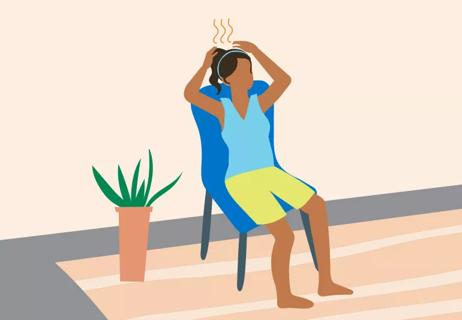Advertisement
This common infection is an imbalance of bacteria in the vagina

It’s not the easiest topic to bring up, so you might be hesitant to talk to your doctor about it. But chances are, your gynecologist can help!
Advertisement
Cleveland Clinic is a non-profit academic medical center. Advertising on our site helps support our mission. We do not endorse non-Cleveland Clinic products or services. Policy
So don’t put off mentioning any unusual vaginal odor that’s got you feeling self-conscious or keeping you from enjoying intimate moments.
Your vagina, by nature, has a slight smell. But a strong odor – one that many women describe as “fishy” – could be a sign of infection.
The culprit is likely bacterial vaginosis (BV). It’s a common vaginal infection that seldom causes physical discomfort. But the emotional discomfort you may feel is plenty painful.
And, surprisingly, the first thing you might want to reach for to counteract the offending odor is more likely to make the problem worse. That’s right — douching or over-the-counter sprays won’t do anything for the infection.
BV is usually not serious. Its hallmark is a foul-smelling vaginal discharge that’s off-white or grayish.
But it can cause non-medical problems. “Education is key, because BV can cause a lot of emotional and psychological distress,” says Ob/Gyn and infectious disease specialist Oluwatosin Goje, MD – like making you feel sexually undesirable or self-conscious, for instance.
BV often accompanies an active sex life, but it’s not a sexually transmitted disease. Bacteria are a natural part of the vagina, but with BV, something upsets the normal balance. There is an overgrowth of “bad” bacteria, and “good” (protective) bacteria are overwhelmed or can’t keep up.
BV affects nearly 30% of women in their child-bearing years. But it can occur in women of any age.
Those who have multiple sex partners (or whose partners have multiple partners) and those who don’t have sex for a while and then resume an active sex life are more at risk, Dr. Goje says.
The odor that accompanies BV is often strongest after sex or during menstruation. But between half and three-quarters of women with BV don’t have any symptoms.
“Your doctor may diagnose BV after noticing a slight odor or discharge during a routine wellness visit,” Dr. Goje says.
Your doctor can help you decide the best course of action after diagnosis. If treatment is necessary, your doctor likely will prescribe antibiotics either in pill form or a vaginal gel or ointment.
However, because antibiotics can cause stomach upset and other side effects, your doctor may recommend against treatment unless symptoms are bothersome.
In the meantime, you should keep the area clean but skip the perfumed soaps and douches, which can upset the pH balance of the vagina.
There is an exception: BV may increase the risk of preterm delivery. So in pregnant women, doctors typically recommend treating the infection even when it’s not causing symptoms, Dr. Goje says.
Dr. Goje notes that others may catch the infection from you. “You can pass BV on to your partner, but as of today the CDC does not recommend partner treatment,” she says.
Advertisement
Even with medication, BV is often recurrent.
“I tell my patients that 20 to 30% of women will come back in three months with BV, and 50% in 12 months,” Dr. Goje says
For women in a monogamous relationship (who may not use condoms regularly), she recommends using condoms for three or four months to break the cycle of sharing the bacteria.
She advises against using feminine hygiene products such as douches and scented creams or deodorants. They actually increase your risk of getting BV by messing with your good bacteria.
Taking probiotics and eating yogurt with “live and active cultures” may help restore the bacterial balance in the vagina, she says.
And, she adds, because BV has symptoms similar to other infections, it’s a good idea to see your doctor if you think you have any type of vaginal infection.
Advertisement
Learn more about our editorial process.
Advertisement

You may be more prone to hot flashes if you have anxiety, but hot flashes can also rev up anxiety

The scenarios vary based on how many pills you’ve missed and whether you take a combination pill or progestin-only pill

Despite popular opinion, scientific research shows that most birth control methods don’t contribute to weight gain

Both are needed for a healthy body

Heat starts in your chest and moves up to your neck and face … and then, the sweating begins

While they may not burn calories or cause fevers, these heat waves can make you miserable — but you don’t have to just grin and bear it!

Taking precautions like eating healthy, stopping smoking and getting regular screenings can help protect against breast cancer

It’s a natural part of aging, starting with perimenopause and eventually leading into postmenopause

Focus on your body’s metabolic set point by eating healthy foods, making exercise a part of your routine and reducing stress

PFAS chemicals may make life easier — but they aren’t always so easy on the human body

While there’s little risk in trying this hair care treatment, there isn’t much science to back up the claims